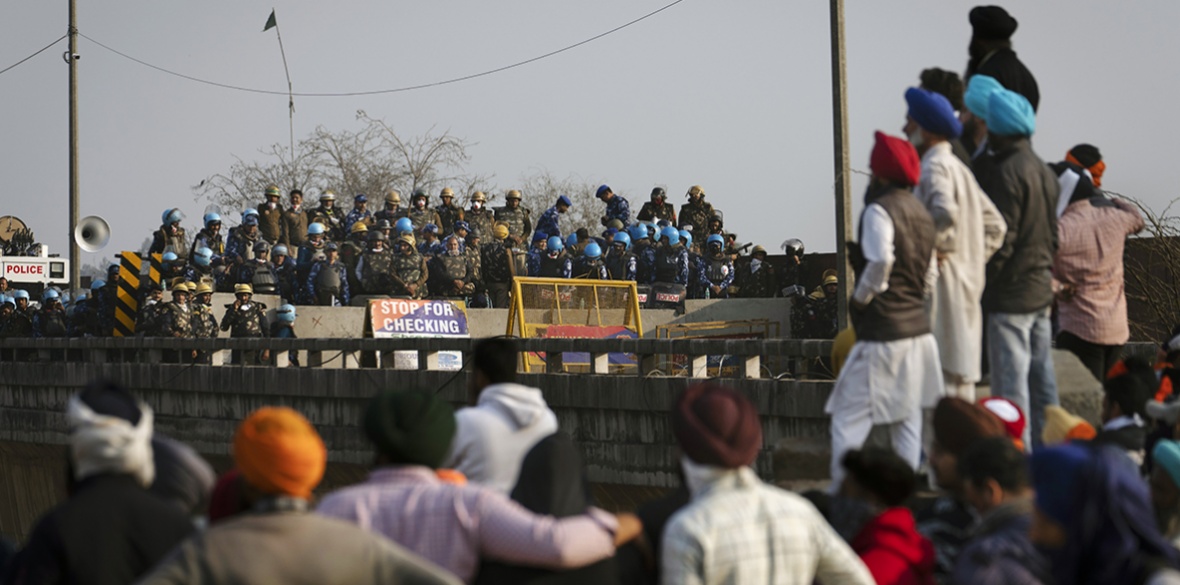This is the last article you can read this month
You can read more article this month
You can read more articles this month
Sorry your limit is up for this month
Reset on:
Please help support the Morning Star by subscribing here
INDIAN farmers will continue their march on New Delhi after rejecting a government bid to defuse their week of protests.
The farmers began their march last week, but their efforts to reach the city have been blocked by authorities, who have used tear gas and heavily barricaded entry points into the capital.
Late on Monday night, farm leaders said they refused the government’s latest offer of a five-year contract for guaranteed prices on crops including pulses, maize and cotton.
The proposal was “not in the interest of farmers,” said Jagjit Singh Dallewal, one of the protest leaders.
He added that the tens of thousands of farmers camped 120 miles from the capital would resume their march to New Delhi on Wednesday.
Mr Dallewal said: “We appeal to the government to either resolve our issues or remove barricades and allow us to proceed to Delhi to protest peacefully.”
The protests renewed a movement from over two years ago in which tens of thousands of farmers besieged New Delhi for over a year protesting at laws extending corporate control of agriculture.
At the heart of the latest protests is a demand for legislation that would guarantee minimum support prices for all farm produce.
Currently, the government protects agricultural producers against any sharp fall in farm prices by setting a minimum purchase price for certain essential crops, a system that was introduced in the 1960s to help shore up food reserves and prevent shortages.
The farmers say a guaranteed minimum support price for their crops would stabilise their incomes.
They are also pressing the government to follow through on promises to double their income, waive their loans and withdraw legal cases brought against them during the earlier 2021 protests.
Negotiations between farm leaders and the right-wing Bharatiya Janata Party government have failed to end the deadlock.
Piyush Goyal, one of the ministers negotiating with the farmers, told news agency PTI that some of the demands of the farmers were “deep and policy-driven,” which made it more difficult to find a resolution.
The protests come at a crucial time for India, where national elections are expected in the coming months and Prime Minister Narendra Modi’s party is widely expected to secure a third term.












